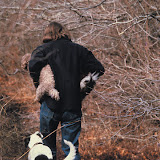Mary Oliver
Pulitzer Prize and National Book Award Winning Poet
The Land and Words of Mary Oliver, the Bard of Provincetown
By half-past 5 on a morning in early May, the sun rising over Blackwater Pond had already brightened the pine woods. I stood in a wide natural path, carpeted with brown-red needles, that rises up the forested dune from the southwest side of the pond. In the high branches of the pines and beeches and honeysuckles, the birds were carrying on their racket — warblers, goldfinches, woodpeckers, doves and chickadees. But on the sandy ground among the trunks, nothing moved. Perfect stillness. Could this have been where Mary Oliver had seen the deer?
Read the rest of “The Land and Words of Mary Oliver, the Bard of Provincetown,” by Mary Duenwald, New York Times, July 5, 2009.
Praise
“One of the astonishing aspects of Oliver’s work is the consistency of tone over this long period [of her career]. What changes is an increased focus on nature and an increased precision with language that has made her one of our very best poets . . . There is no complaint in Ms. Oliver’s poetry, no whining, but neither is there the sense that life is in any way easy . . . These poems sustain us rather than divert us. Although few poets have fewer human beings in their poems than Mary Oliver, it is ironic that few poets also go so far to help us forward.”
—Stephen Dobyns, New York Times Book Review
